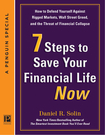
If you are in the money management business (as a broker or registered investment adviser), your goal is to increase the amount of assets you have under management. One of the ways to accomplish that goal is through advertising. Advertising can be helpful to investors if it provides accurate and useful information. It can also be harmful if the information is selective, inaccurate or misleading.
Recently, E*TRADE ran a series of commercials in which it attacked investment advisers for high fees, among other complaints. It gave hypothetical adviser fees of 2 percent a year as an example and showed the cost over time to investors paying those fees.
I agree with E*TRADE that investors should be concerned about costs, including the fees paid to advisers. I don't believe fees of 2 percent of assets under management are typical. I suspect the average is closer to 1 percent. In any event, I was eager to learn more about the fees charged by E*TRADE and the advice it gives to its clients. I contacted E*TRADE and, using my real name, asked its representative to send me a schedule of fees and proposed investments for a portfolio of $1 million, with an asset allocation of 60 percent fixed income and 40 percent stocks.
For clients who elect its "Managed Investment Portfolio," E*TRADE charges a maximum annual net advisory fee of 0.90 percent on assets up to an account value of $100,000. Its fees decline on a sliding scale as assets increase in value. For assets over $1 million, its fee is 0.65 percent.
Most of the funds recommended by the E*TRADE representative were actively managed funds where the fund manager attempts to beat a designated benchmark. The average expense ratio of those funds was 0.72 percent. A comparable passively managed portfolio would have lower expense ratios, ranging from 0.20 percent to 0.47 percent. Higher expense ratios reduce returns.
The funds in the E*TRADE portfolio paid 12b-1 fees of 0.15 percent. These are marketing fees often paid to intermediaries for selling the fund. These fees are included in the expense ratios of the funds. The payment of 12b-1 fees gives brokers an incentive to sell those funds and may create a conflict of interest. Passively managed funds typically pay no 12b-1 fees.
Three of the mutual funds recommended by E*TRADE charged front-end loads, which is a commission or sales charge applied at the time of the initial purchase. These loads lower the size of the investment. Passively managed funds typically do not charge front-end loads.
What are the chances that an actively managed portfolio will outperform a less expensive, passively managed one? Exceedingly small. My colleague Larry Swedroe wrote a blog post addressing this issue. He found that, based on the assumptions set forth in his blog, the probability of a portfolio of 10 equally-weighted actively managed funds, rebalanced annually, successfully generating "alpha," was a minuscule 0.055 percent over a 10-year period.
Another issue with actively managed funds (in taxable accounts) is their lack of tax efficiency, especially when compared with index funds, which are very tax efficient. Actively managed funds can also have significant internal trading costs, which reduce returns.
While I applaud E*TRADE for focusing on fees charged by advisers, you need to be concerned about the entire picture, which includes expense ratios, taxes, risk and performance. Sometimes, what may initially look like a bargain can cost you dearly.

